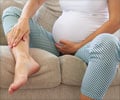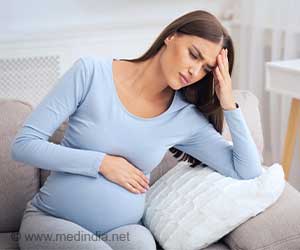According to an Australian study, taking high doses of vitamin C and E supplements during pregnancy in no way helps to cut down the risk of developing preeclampsia in healthy women
According to an Australian study, taking high doses of vitamin C and E supplements during pregnancy in no way helps to cut down the risk of developing preeclampsia in healthy women.
Preeclampsia is a condition in which a pregnant woman experiences after the 20th week of pregnancy elevated blood pressure at a level that could potentially endanger both the woman and the fetus.According to foodconsumer.org, the study of nearly 2000 women in singleton pregnancies found that those with high intake of vitamin C and E were at the same risk of preeclampsia as those who did not take extra vitamins.
935 women were randomly assigned 1,000 milligrams of vitamin C and 400 international Units of vitamin E daily whereas the remaining 942 women were given a placebo. This regimen was followed from the second trimester of pregnancy to the delivery of the baby.
Researchers found no statistically significant difference between the two groups in terms of their risk of preeclampsia. Around 6 percent of the women in the vitamin group developed preeclampsia compared to 5 percent in the placebo group.
In addition, mortality rates or other serious complications were found in 9.5 percent of cases in the vitamin group compared to 12.1 percent for the placebo group.
The risk of delivering a low birth weight baby was 8.7 percent for women receiving the vitamin therapy compared to 9.9 percent for those receiving a placebo.
Advertisement
Additionally, a larger group of women could provide a definitive answer to this conundrum, Jeyabalan suggested. "This is a treatment that at least for now has no clear benefit and women should not take this therapy without being in a trial situation or without careful consultation with their physician."
Advertisement
British researchers had found that increasing the dosage of the vitamins increased the women's risk of having a low birth-weight baby. The study had concluded that high-risk groups of women were better off without the additional vitamin supplementation.
Preeclampsia occurs in approximately 8% of all pregnancies with 15 percent resulting in premature births. Increased risk is associated with first pregnancies, advanced maternal age, African-American heritage, multiple pregnancies, and a past history of diabetes, high blood pressure, or kidney disease.








